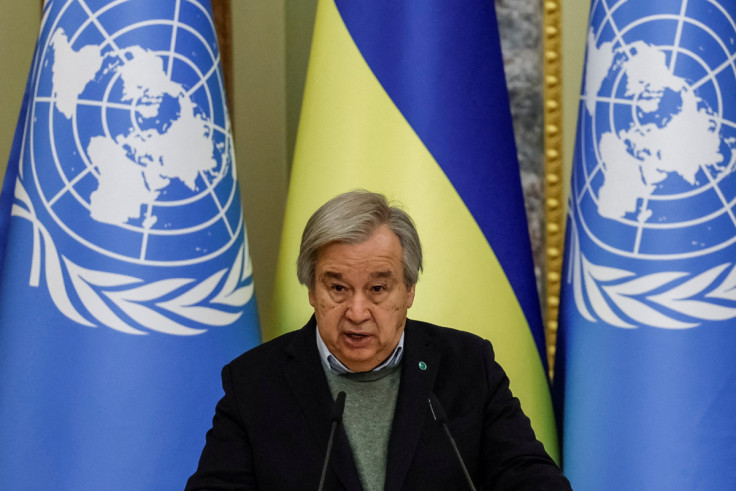EU, UN chief discuss food security, sanctions, military aid to Ukraine
European Union leaders held talks on Thursday with U.N.

European Union leaders held talks on Thursday with U.N. chief Antonio Guterres on global food security and sanctions imposed on Russia over its invasion of Ukraine, and were also expected to endorse a plan to supply more artillery shells to Kyiv.
Guterres' participation in the EU summit comes days after the renewal of a deal brokered by the United Nations and Turkey on the safe export of Ukrainian grain via the Black Sea that is seen as crucial to overcoming a global food crisis.
German Chancellor Olaf Scholz said the bloc wanted "to ensure that Russia's horrible war of aggression against Ukraine would not result in food insecurity in the world".
"We need to ensure that grain exports, for example from Ukraine, can continue," he said.
Estonian Prime Minister Kaja Kallas spoke against any easing of sanctions on Moscow under the grain deal and called for a tighter price cap on Russian oil exports.
Joining by a videocall, Ukrainian President Volodymyr Zelenskiy said any weakening of sanctions against Russia would be wrong and asked the bloc to speed up deliveries to Kyiv of tanks, ammunition and aircraft, according to an EU official.
The United States has pushed back against Russian demands that Western sanctions be eased before Moscow allows Ukrainian Black Sea grain exports to continue beyond mid-May, saying there are no restrictions on Russian farm products or fertilizers.
Inside the EU, the issue of fertilizer exports is blocking more sanctions against Russia's ally, Belarus. The bloc says new sanctions are needed to stop Belarus from serving as a route to bypass the existing Russia trade restrictions.
But Lithuania opposes what it calls "fertiliser oligarch" exemptions proposed to ensure Belarusian fertilisers continue flowing to third countries, arguing that that would weaken the sanctions regime overall, diplomats said.
Proponents say such carve-outs, similar to those the EU has in place under its sanctions against Russia, are necessary to ensure food security and refute Moscow's charge that EU measures - rather than Russia's invasion - are driving the global crisis.
Diplomats involved in preparing the summit were sceptical of any imminent breakthrough.
AMMUNITION
Leaders were due to endorse a plan - agreed by foreign ministers on Monday - to send a million artillery shells to Ukraine over the next year.
"We need to support Ukraine to defend itself, we need to continue to show solidarity and avoid any sign of fatigue," said European Parliament head Roberta Metsola, also present.
"Europe will always stand for real peace, with accountability and justice," she said as the summit also discussed bringing to justice those responsible for the war.
Officials say Ukraine is burning through shells at a faster rate than its allies can produce them, prompting a renewed search for ammunition and ways to boost production, which requires more money as the war enters its 14th month.
The EU earmarked 1 billion euros ($1.1 billion) for the swift supply of shells - and possibly missiles - from existing stocks and another 1 billion euros for joint orders by EU countries for more rounds.
The money will come from the European Peace Facility, an EU fund that has already earmarked several billion euros for military aid to Ukraine. On Thursday, the summit was starting to discuss topping it up with another 3.5 billion.
Copyright Thomson Reuters. All rights reserved.





